Post
A catch
Save a catch to start your fishing logbook. You will be able to to share it with the community if yo want!
A fishing trip
Post an ad to go fishing with other fishermen
Save a catch to start your fishing logbook. You will be able to to share it with the community if yo want!
Post an ad to go fishing with other fishermen
Share a thought, a question with the community
My favorite cities
×Join our 4 fishermen in Riverside in Riverside. The fishing forecast is currently 3.7. The most caught fishes here are the black crappie, the alligator gar, the razorback sucker and the pallid sturgeon. Come try the most famous fishing techniques like the bass trolling, angling - using natural bait, surfcasting or angling - using floats.
Our fishing forecast of Riverside indicates the best time to go fishing in this city.
The Black Crappie
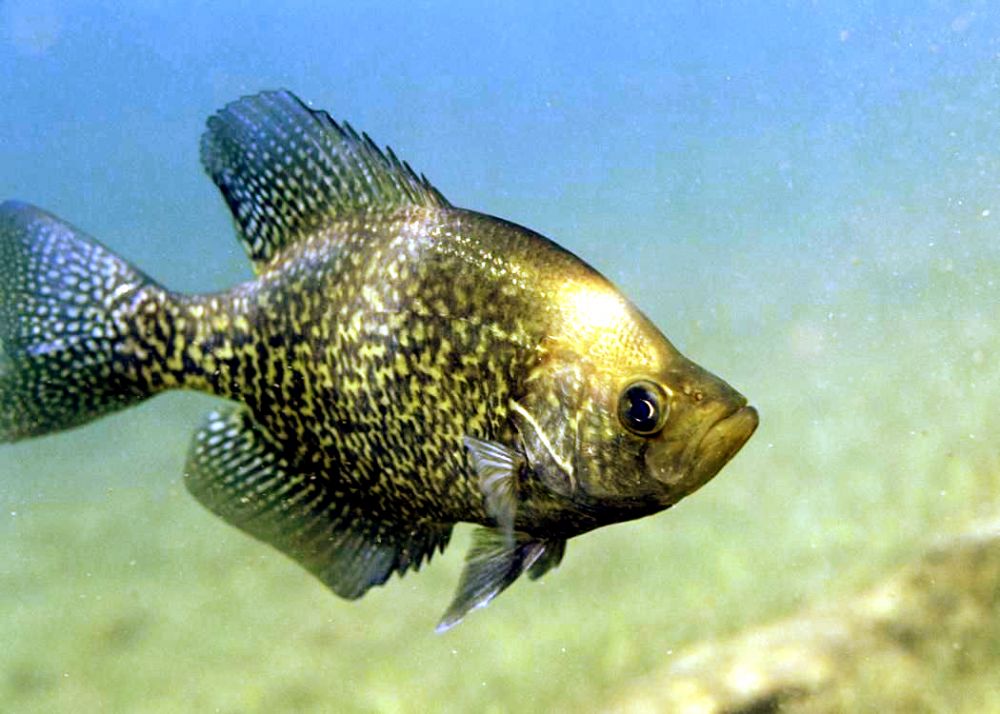
The black Crappie belongs to the Centrarchidae family. Its average length is 18 to 25 cm, up to 38 cm with a weight generally varying between 300 and 900 grams. The largest specimens can reach 1kg. The all-time record comes from Missouri with a 2.26kg black crappie, while Ontario's is 1.7kg. It breeds around the end of March. Its longevity is 7 years. It is fished in April and May. The body of this fish has the typical shape of craps and other members of the centrarchidae family, i.e. oval and flattened with thorny fins. The height of this fish represents about 33% of its length. Its color is mainly dark olive, covered with a mosaic of irregular black spots on its head, back and sometimes on its belly. The flanks are paler, but also spotty, often with silver, green or even blue highlights. The color can vary considerably depending on the environment in which the fish live. Its mouth is large, reaching to a point below the middle of the eye. The black Crappie is particularly recognizable by its large fins, which give the impression that it has sails. It has 7 to 8 spines on the dorsal fin and 6 to 7 spines on the anal fin. This is one of the main distinctions that can be made with some craps that have 10 to 12 spines on the dorsal fin. The differences between the white and black crappie are sometimes subtle. The dark spots on the black crappie are a random texture, they appear as stripes on the white crappie. The latter also has a less dark back, a longer body and, above all
The Black Crappie is a famous fish you can catch in Riverside.The Alligator Gar
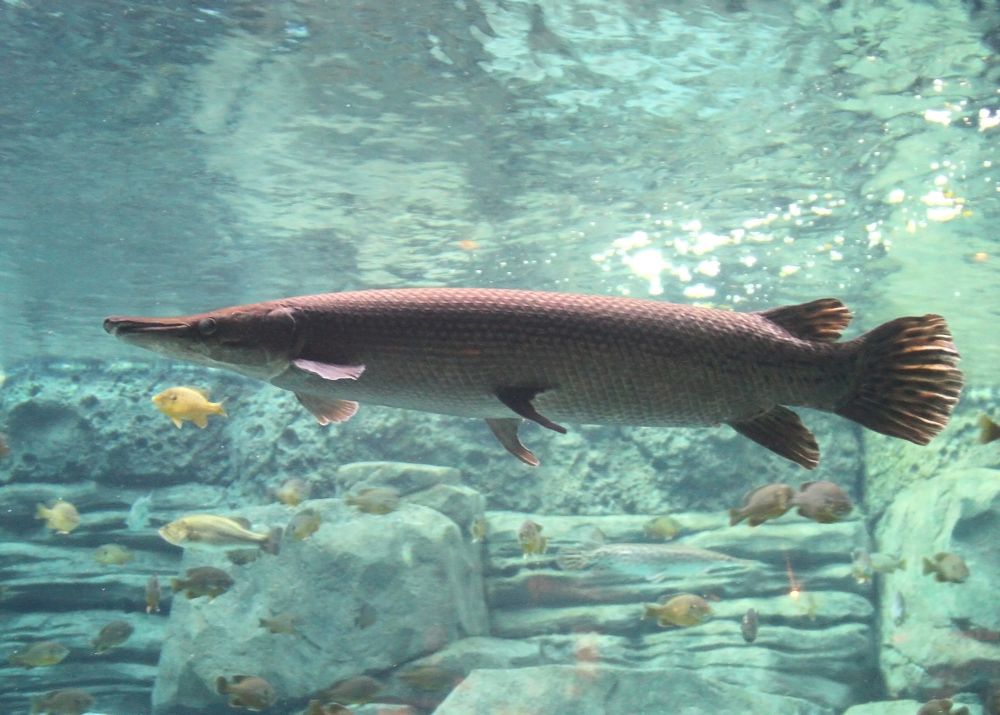
The Alligator Gar belongs to the Lepisosteidae family. In its adult form, it can measure up to three meters long and weigh up to 140 kilograms. It breeds in spring. It can be fished all year round. Alligator gar are elongated fish with a long, narrow snout. Their scales form a kind of armor, protecting them from other predators, the scales are similar in hardness to our nails, hard as keratin. They are also sharp, never brush a sharp-edged club fish. These fish have the swim bladder modified into a gas bladder, it allows them to breathe at the surface.
The Alligator Gar is a famous fish you can catch in Riverside.The Razorback Sucker
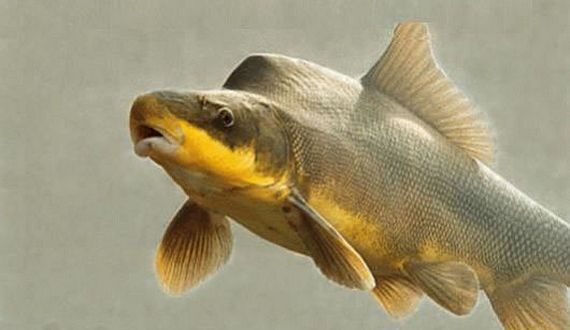
The Razorback Sucker belongs to the Catostomidae family. It is a relatively large catostomidae, reaching more than 91 cm in length and weighing 5 to 6 kg. It has a lifespan of 50 years. It nests from January to June. It cannot be fished because of its status as an endangered species. Razorback suckers are similar to other Catostomidae, with the exception of two main characteristics. The most characteristic features of the razorback sucker are a pronounced edge made of neural and internal bone that extends from the head to the dorsal fins, as well as elongated filaments on the gills. Females have a lower keel. Well-developed filaments are made for zooplankton feeding. It has a long snout, a long rounded head that is ventrally compressed and a ventral mouth with a split lower lip. There is 12 to 15 rays on the dorsal fin and the anal fin has 7 rays. Pelvic and anal fins are longer in males. It has an almost straight lateral line with 68 to 87 scales.
The Razorback Sucker is a famous fish you can catch in Riverside.The Pallid Sturgeon
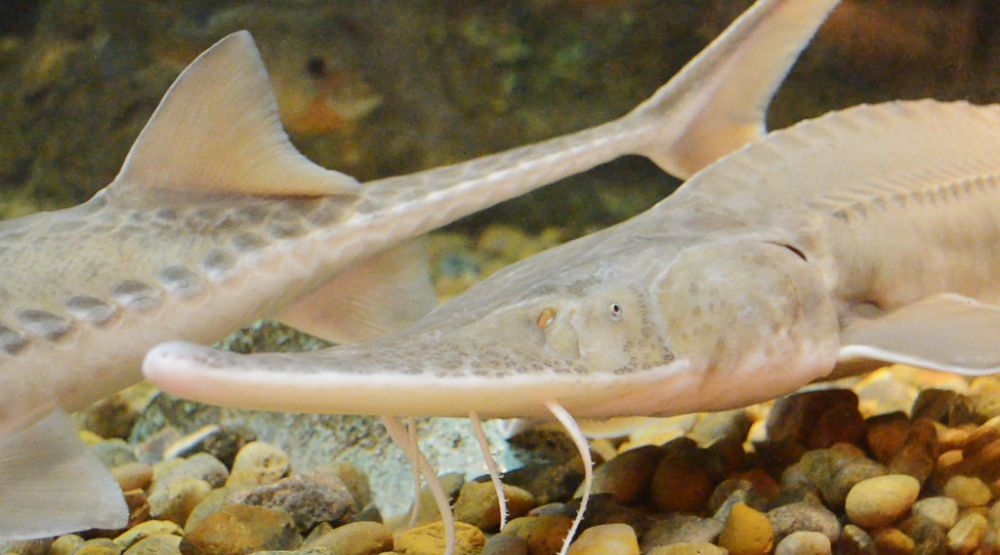
The Pallid Sturgeon belongs to the Acipenseridae family. it measures between 70 and 150 cm long and 39 kg in adulthood. The Pallid Sturgeon takes 15 years to reach maturity, and can live for more than a century. it breeds from May to July. Considered as endangered, it cannot be caught. Like the other Acipenseridae, it is considered as a "living fossil". The Pallid Sturgeon has a characteristic appearance that makes it to be qualified as "primitive" or "dinosaur". It has a pale color, especially in adults who fade with time, with a greyish back and sides. Its caudal fin is heterocercal, with an upper lobe more developed than the lower lobe. Like other sturgeons, the Pallid Sturgeon has no calcified scales or bones, unlike more recent fish species. It has a cartilaginous skeleton with five rows of thick patches that extend along its sides, belly, back and most of its head. These plates are covered by the skin and protect the animal. This cartilage also extends to the back of the fish’s body, between the dorsal fin and the tail. The mouth starts well set back from the tip of the head. Because it has no teeth, it uses this stretchy mouth to suck small fish, shellfish and other foods from the bottom of the river. Like all sturgeons, it has four barbells. We think they have a sensory role in detecting food.
The Pallid Sturgeon is a famous fish you can catch in Riverside.The Bull trout
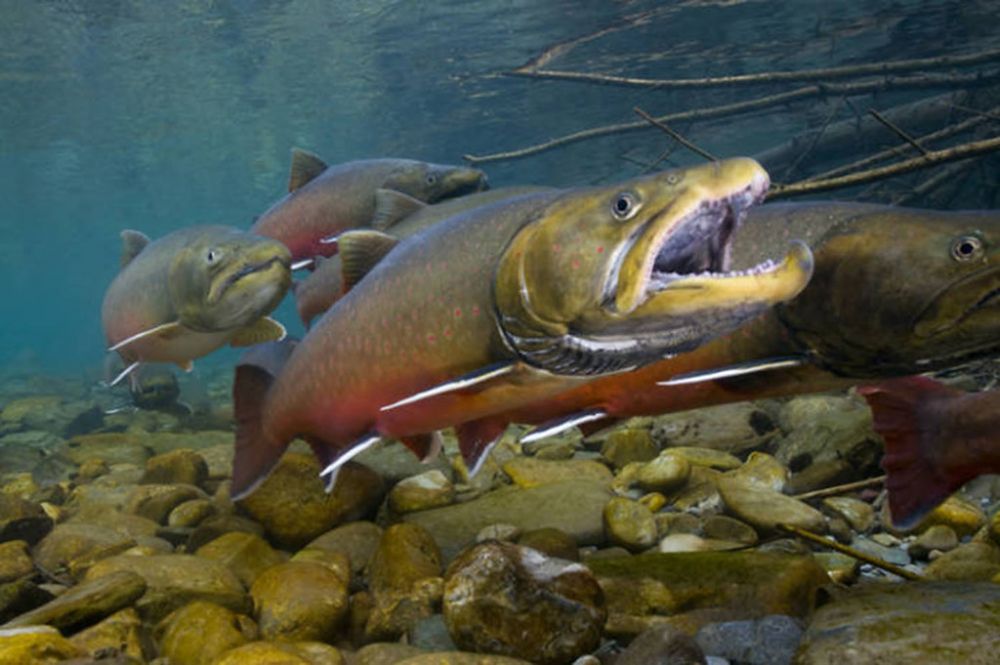
The Bull trout belongs to the Salmonidae family. It can measure up to 103 cm long and weigh up to 14.5 kg. It can live for a dozen years. It breeds from July to December. It can be fished from June to February. Like other arctic char species, the fins of a bull trout have white leading edges. Its head and mouth are exceptionally large for salmonidae, which gave it its name. Bull trout up to 103 cm long and weighing 14.5 kg have been recorded. Bull trout can be migratory, moving through major river systems, lakes and the ocean, or they can be resident and remain in the same river all their lives. Migratory bull trout is generally much larger than resident bull trout, which rarely exceeds 2 kg. Bull trout differs from brook trout (S. fontinalis) in the absence of distinct spots on the dorsal fin, as well as yellow, orange or salmon spots on the back, as opposed to red spots with blue halos on the trout stream. Bull trout do not have the deep-dug caudal fin of lake trout (S. namaycush, another Arctic char).
The Bull trout is a famous fish you can catch in Riverside.Our fishing forecast of Riverside indicates the best time to go fishing in this city.
Our fishing forecast of Riverside indicates the best time to go fishing in this city.
Our fishing forecast of Riverside indicates the best time to go fishing in this city.
